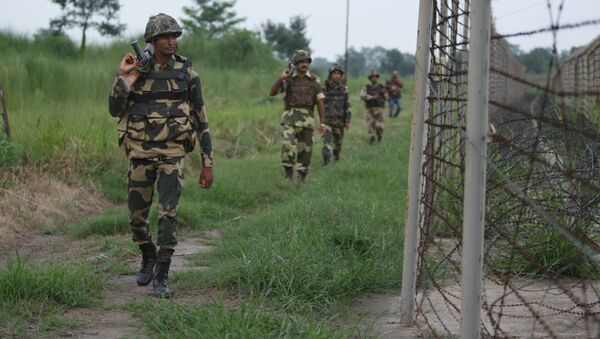This is the second time in less than a month that National Security Adviser Ajit Doval is visiting Jammu and Kashmir.
Doval spent 11 days last month in the Kashmir region reviewing security and intelligence measures and meeting local people after the Indian parliament passed a law revoking the decades-long quasi-autonomous status of Jammu and Kashmir.
Doval’s second visit to the region in September is expected to last for at least a week, during which fresh instructions for sealing gaps in the security grid on India’s borders with Pakistan could be taken, media reports said.
The on-the-ground assessment exercise would also include taking stock of ongoing development-related activities.
Doval would then brief Indian Prime Minister Narendra Modi, currently in New York, ahead of the latter’s address to the 74th UN General Assembly session on Friday.
According to media reports, Doval was asked to stay back in India to monitor the situation in Jammu and Kashmir.
Apart from reviewing security and development-related activity, the Jammu and Kashmir administration and he are expected to conduct a review of political detentions.
Local media reports also quoted Indian Army sources, speaking on condition of anonymity, as saying that close to 500 terrorists have been lined up and readied across the border to cross over and carry out terror strikes at various locations in India.
The Indian Army chief’s recent statement on a possible terrorists gathering at the border in Pakistan and the reactivation of a terror camp in that country's Balakot region was described as “completely baseless” by the Pakistani Foreign Office in a statement.
The Foreign Office said that the allegation of “infiltration” from Pakistan reflected “a desperate attempt” by India to divert international attention from the “humanitarian crisis” in Jammu and Kashmir.
It said New Delhi will not “succeed in misleading the world community through these diversionary tactics”.
Kashmir has been a major flashpoint between India and Pakistan ever since they gained independence from British colonial rule in 1947.
Both control part of Kashmir, but claim it in full. They've also fought three wars since then, two of which were over Kashmir.
Tensions between the nuclear-armed neighbours escalated in the first week of August after New Delhi revoked Jammu and Kashmir's quasi-autonomous status.


